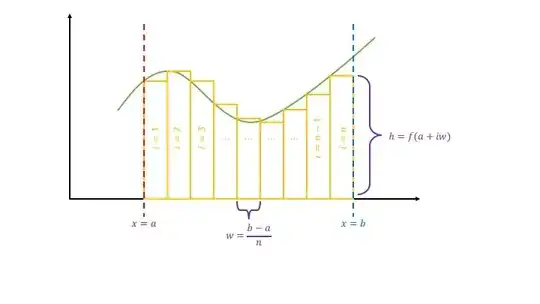I believe you are asking if integration can be defined in a way other than setting an identity (e.g., with a limit like differentiation). This is how the Riemann integral is defined. The integral is taken as the limit of a Riemann sum:

$$\begin{align}
\int_a^b f(x) \, dx &= \lim_{n\to\infty}\sum_{i=1}^{n}h \cdot w \\
&= \lim_{n\to\infty}\sum_{i=1}^{n} f\left(a+iw\right) \cdot \frac{b-a}{n} \\
&= \lim_{n\to\infty}\sum_{i=1}^{n} f\left(a+i\frac{b-a}{n}\right) \cdot \frac{b-a}{n} \\
\end{align}$$
If you are an introductory calculus student, this is the type of definite integration that you use. The identities from indefinite integration come from the understanding that determining an antiderivative and evaluating it between two points yields the same value as the limiting process.
As you enter higher levels of math, Riemann integration fails or simply makes no sense. This is when other forms of integration—such as Lebesgue integration, which might be the easiest for you to grasp—must come into play.
